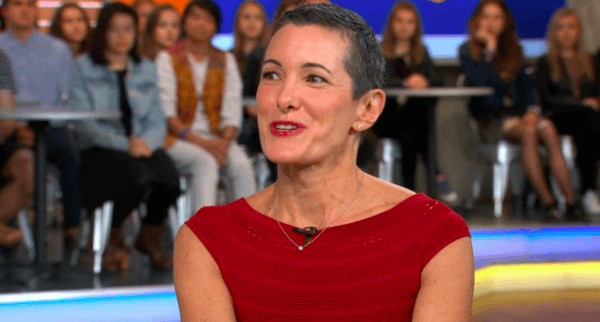One-hundred and eighty-two point five. 182.5.
That’s the number of days I spent at home with each of my babies when they were newborns.
If you’re struggling with the maths, that’s six months.
And I just discovered that there is an optimum number of days a new mother should spend with her brand-new baby before she goes back to work.
It’s 1000.
Listen: TV Presenter Bec Judd runs us through her maternity leave process. Post continues after audio.
I read about that in a Sunday column by Angela Mollard for News Corp. And it made me cry.
It made me cry because lately, like almost every other parent I know on one day or another, I have been struggling with my primary-school-aged kids in various ways. Tantrums. Defiance. Unexplained tears that go on for hours. The edges of something that looks a bit like anxiety, if you look at it with that thought already in your head.
And there, on a Sunday morning when I was feeling vulnerable, picking up the pieces of another window-rattling tanty, was an answer, and a stick with which to bash myself – my kids are wild because I didn’t spend 1000 days with them when they were tiny. It’s all my fault. Of course it’s all my fault.
Angela Mollard is not responsible for my tears. Clearly, the cause of that ridiculous reaction lies with me. But the architect of my despair is not Angela, but Erica Komisar. Komisar is a psychologist from New York City who has written a book based on her research into psychology, neuroscience and epigenetics (that’s a fancy genetic speciality) – Being There: Why Prioritising Motherhood in the First Three Years Matters.



Top Comments
I think Steve Biddulph shares a similar sentiment in his book "Raising Boys".
Two things; firstly I want to be there for the first years of my childs life, and I hate that in our society many women cant take more than 3-6 months to solely raise their child. Secondly, I disagree with the notion that it must be mum. I think if done correctly dad, nanna, a loving aunt etc. can achieve close to the same result as mum. The only thing is I don't think a professional or non-parent-like figure can. The child has to both love and feel wholly loved by them, while the connection is strongest with mum that doesn't mean others can't be cultivated.